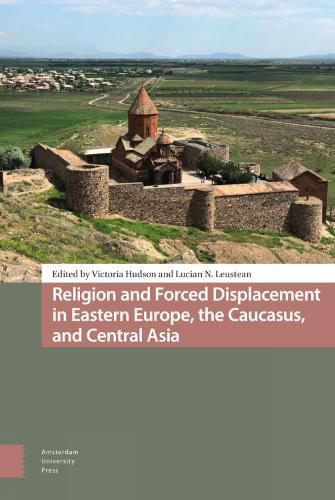Readings Newsletter
Become a Readings Member to make your shopping experience even easier.
Sign in or sign up for free!
You’re not far away from qualifying for FREE standard shipping within Australia
You’ve qualified for FREE standard shipping within Australia
The cart is loading…






This book examines the social and political mobilisation of religious communities towards forced displacement in relation to tolerance and transitory environments. How do religious actors and state bodies engage with refugees and migrants? What are the mechanisms of religious support towards forcibly displaced communities? Religion and Forced Displacement in Eastern Europe, the Caucasus, and Central Asia argues that when states do not act as providers of human security, religious communities, as representatives of civil society and often closer to the grass roots level, can be well placed to serve populations in need. The book brings together scholars from across the region and provides a comprehensive overview of the ways in which religious communities tackle humanitarian crises in contemporary Armenia, Bulgaria, Greece, Georgia, Kazakhstan, Kyrgyzstan, Moldova, Poland, Russia, Serbia, Ukraine and Uzbekistan.
$9.00 standard shipping within Australia
FREE standard shipping within Australia for orders over $100.00
Express & International shipping calculated at checkout
This book examines the social and political mobilisation of religious communities towards forced displacement in relation to tolerance and transitory environments. How do religious actors and state bodies engage with refugees and migrants? What are the mechanisms of religious support towards forcibly displaced communities? Religion and Forced Displacement in Eastern Europe, the Caucasus, and Central Asia argues that when states do not act as providers of human security, religious communities, as representatives of civil society and often closer to the grass roots level, can be well placed to serve populations in need. The book brings together scholars from across the region and provides a comprehensive overview of the ways in which religious communities tackle humanitarian crises in contemporary Armenia, Bulgaria, Greece, Georgia, Kazakhstan, Kyrgyzstan, Moldova, Poland, Russia, Serbia, Ukraine and Uzbekistan.